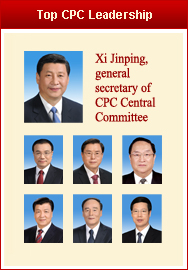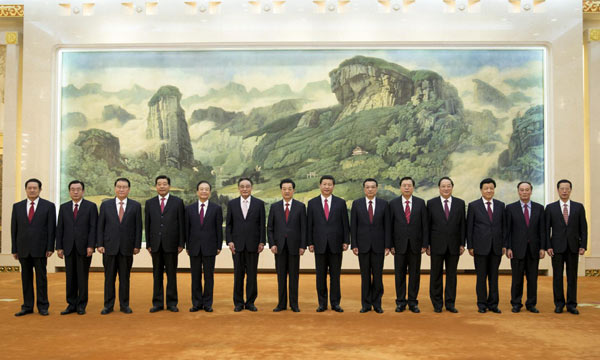Moderately prosperous China brings chances to world
(Xinhua)
Updated: 2012-11-23 16:04
BEIJING - The just-concluded 18th Communist Party of China (CPC) national congress has promised to build China into a moderately prosperous society by 2020.
The ambitious goal, if put in place, would create a golden opportunity for entrepreneurs and investors worldwide.
For 30 years, China has been steadfast in turning itself from an economically isolated country into a market-oriented and open economy, and has made rather laudable achievements.
China has become the world's second-largest economy, the biggest manufacturer and exporter, and the owner of the world's largest foreign exchange reserves.
As the world's major economies are still struggling to find a way out in the labyrinth of debts and fiscal puzzles, China has still managed to stay as an important engine to boost regional and world economic growth.
Moreover, once China completes its task of further expanding its economy, the consuming power of its 1.3 billion population will be substantially elevated.
In a keynote speech at the 18th CPC National Congress, Hu Jintao said by 2020, China will double its 2010 GDP and per capita income for both of the country's urban and rural residents.
It is the first time that China has specially detailed its objective on per capita income in the country's blueprint for future development.
And the emphasis on raising the income of average Chinese people in China's roadmap to prosperity is in line with the country's commitment to shifting its growth module to a more consumption-driven pattern.
As a result, some 600 million Chinese will join the rank of the middle-class by 2020, as was predicted earlier November by China Institute for Reform and Development, a government think tank.
With surging discretionary income, this expanded army of middle-class Chinese will carry out more aspiration-driven spending, including the buying of globally branded luxury goods.
According to the World Luxury Association, by the end of 2011, Chinese consumers' total spending on luxury market -- excluding the buying of private planes, yachts and limousines -- has reached 12.6 billion U.S. dollars, making China the world's largest luxury-goods consumer.
The Hong Kong-based investment bank CLSA Asia-Pacific Markets predicted earlier this year that Chinese consumers will buy 44 percent of luxury goods sold in the world by 2020, up from 15 percent in 2010.
Meanwhile, the CPC also promised to improve its social security system as it leads China forward. An ameliorated social safety net would also help to reduce the worries among ordinary Chinese for flaring costs on medicine and education, thus prompting them to spend more.
The booming purchasing power of the Chinese people would mean growing profits for both retailers and manufacturers in and beyond China, which in turn would further revive the slack global economic growth.
A moderately prosperous China will also mean a fairer and well-regulated market, and an improved financial system for foreign companies seeking business opportunities in the country.
Furthermore, as China strives to accelerate its urbanization process, its growing demand for energy and raw materials will also be a big boon to the world's sluggish commodity market.
According to a 2012 International Monetary Fund working paper, entitled China's Impact on World Commodity Markets, China's consumption in 2010 accounted for about 20 percent of non-renewable resources, such as metal ores, 23 percent of major agricultural crops, and 40 percent of base metals.
The paper concluded that the global commodity market developments will increasingly be determined by China.
The crisis-stricken world economy desperately needs engines of growth, and fortunately, a moderately prosperous China can provide that impetus.
Related Stories
China's power consumption to gain steam in Q4 2012-11-22 10:29
China: 'bigger role in global economy' 2012-11-20 14:32
Survey points to better prospects in 2013 2012-11-20 07:49
CCTV advert auction nets $2.55b 2012-11-19 23:30
Central bank warns of capital flows 2012-11-19 23:30
Import value booms during last decade: minister 2012-11-17 04:04
Economy still promising despite slowdown: Kong Quan 2012-11-15 23:45
China can avoid middle income trap 2012-11-15 10:16

Top News
Xi emphasizes adherence to CPC Congress spirit
Top legislator urges implementation of congress spirit
Moderately prosperous China brings chances to world
Video







